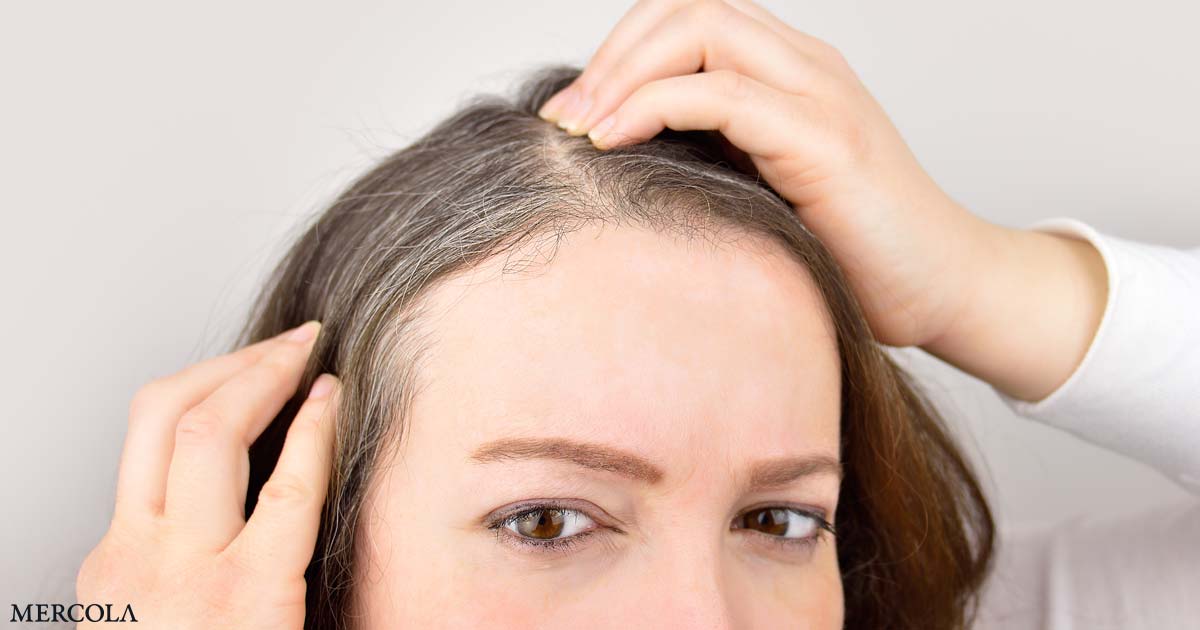This Is Why You Have Gray Hair

One you reach the age of 30, you have a 10% to 20% chance of graying hair with each passing decade.1 It's a fact of life that, eventually, virtually everyone will go gray.
1Your hair color comes from pigment called melanin. Each hair may contain dark melanin (eumelanin) and light melanin (pheomelanin), which blend together to form the many shades of hair color among humans.
When you're young, special pigment stem cells called melanocytes inject pigment into keratin-containing cells.
This keratin, a protein, makes up your hair and is responsible for giving it its color. As you age, melanin is reduced, which is why your hair turns gray and, ultimately, white (this means there's no melanin left).2
2What exactly causes melanin to be reduced and hair to turn gray has remained a mystery until now. An international team of researchers has discovered the first gene linked to gray hair.
The study involved a genome-wide association scan in more than 6,000 Latin Americans to look for genes related to features of scalp hair and facial hair, including graying, balding, beard thickness, monobrow, eyebrow thickness and more).3
3A gene that has previously been linked to blonde hair in Europeans turned out to be connected to gray hair as well and accounted for about 30% of hair graying among the study participants.
The other 70% is likely due to factors such as age, environment, stress and more. The researchers plan to look for ways to manipulate this genetic pathway to prevent hair from turning gray (including drugs, which I would not recommend taking for the purpose of changing your hair color). Kaustubh Adhikari, Ph.D., a postdoctoral researcher at University College London, told TIME:4
4"We might have drugs that boost or stop the protein from acting and change the amount of melanin in hair follicles and change the hair internally ... So once the hair comes out like the way you want, you don't have [to] go out and buy dyes."
According to Desmond Tobin, Ph.D., professor of Cell Biology from the University of Bradford in England, your hair follicles may be regulated by a "melanogentic clock" that eventually slows down the activity of melanocyte cells. Further, according to the Library of Congress:5
5Read the full article at the original website
